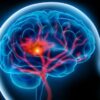A new systematic review and meta-analysis published in Neuropsychology Review show how mindfulness may improve cognitive function in older adults.
The study was conducted by researchers at University College London.
From the findings: “Mindfulness-based programs (MBPs) are increasingly utilized to improve mental health. Interest in the putative effects of MBPs on cognitive function is also growing.”
“This is the first meta-analysis of objective cognitive outcomes across multiple domains from randomized MBP studies of adults,” according to the findings.
For the study, researchers searched through seven databases. In total, their study yielded more than 50 unique studies.
“Subgroup analyses identified significant effects for studies of non-clinical samples, as well as for adults aged over 60,” researchers found. “Across all studies, MBPs outperformed inactive, but not active comparators. Limitations include the primarily unclear within-study risk of bias (only a minority of studies were considered low risk), and that statistical constraints rendered some p-values unreliable.”
“Together, results partially corroborate the hypothesized link between mindfulness practices and cognitive performance,” the findings suggested.
“Future research is encouraged to adopt more rigorous methodology; to prioritize the standardized measurement and reporting of cognitive function; and to seek to identify the components of MBPs responsible for driving cognitive changes.”


